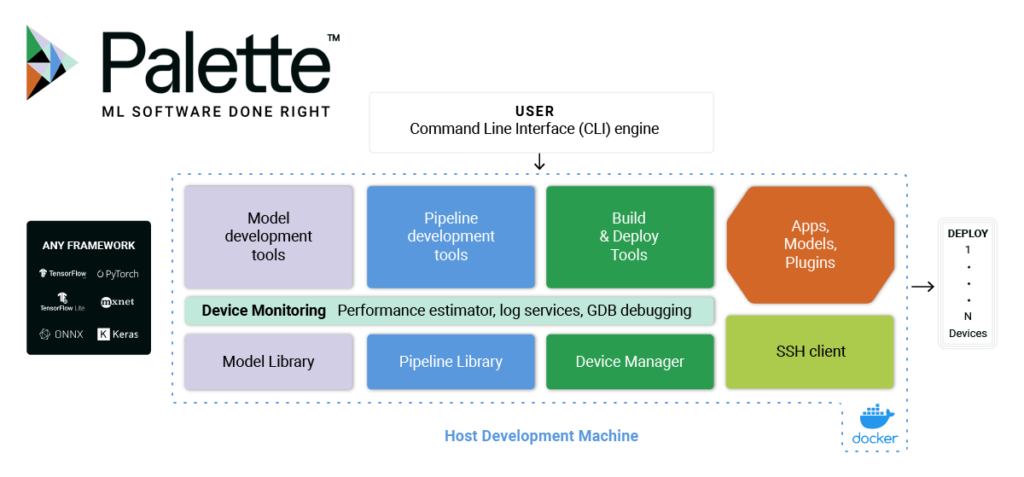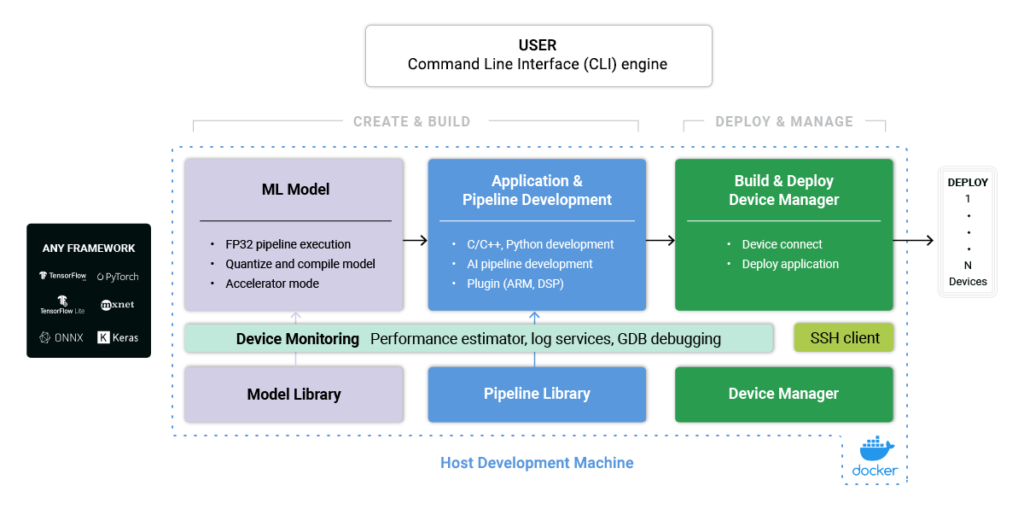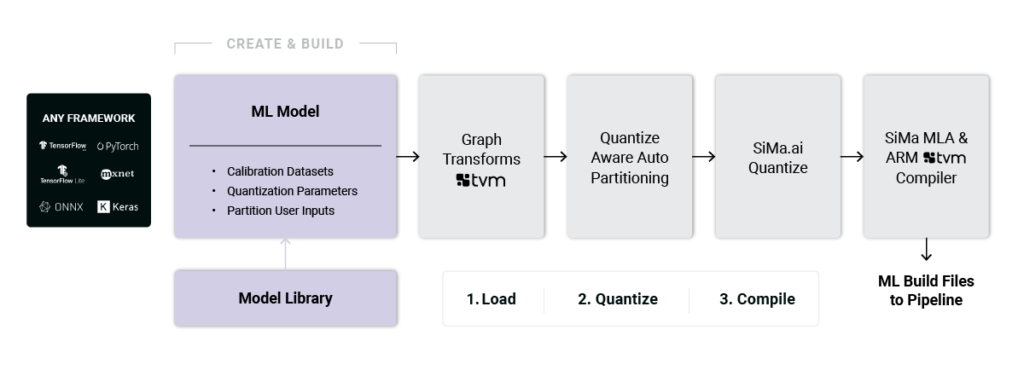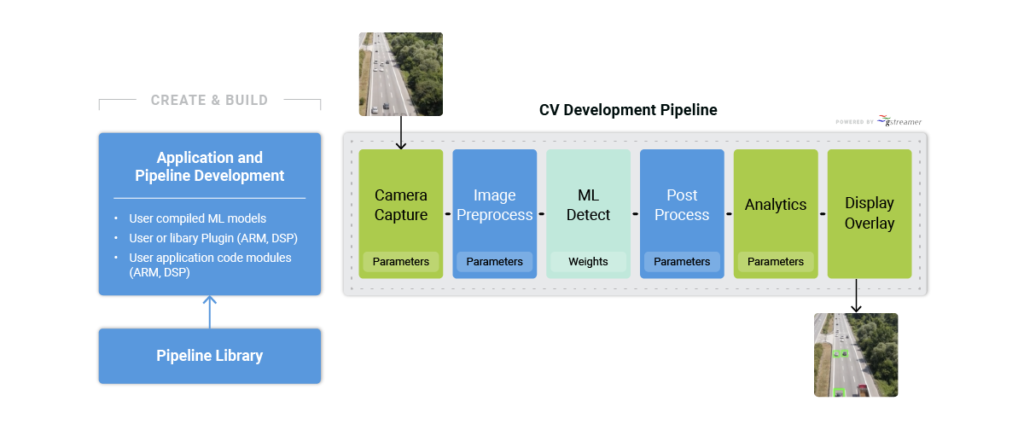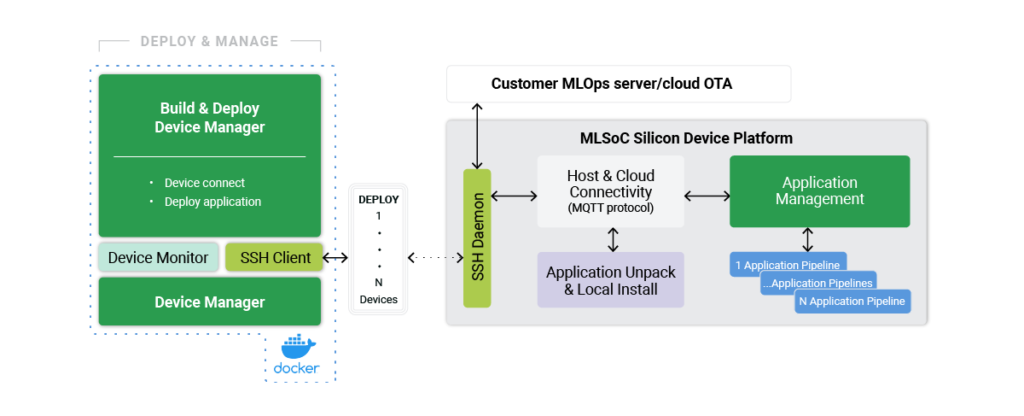SiMa.ai’s Palette software addresses ML developer’s steep learning curve by avoiding the arcane practice of embedded programming. Palette software is a unified suite of tools, functioning much like an ML developer’s familiar cloud equivalent environments, with pushbutton software commands to create, build and deploy on multiple devices. Palette can manage all dependencies and configuration issues within a container environment while securely communicating to the edge devices. This approach still enables embedded programmers flexibility to perform low level optimization of the code. The reaction from our ML developers was “This is exactly what I am looking for!”
Palette is the delivery mechanism for Any, 10x, and Pushbutton.
Any:
Our ML compiler front end leverages open source Tensor Virtual Machine (TVM) framework, and thus supports the industry’s widest range of ML models and ML frameworks for computer vision.
10x:
Our compiler and patented static scheduling approach eliminates stalls, minimizes data movement, caching and improves utilization of our ultra dense machine learning tiled architecture. This combination produces not only a high TOPS/watt rating, our FPS/watt efficiency is 10x times better than competing solutions that often resort to hand coded solutions.
Pushbutton:
We designed our innovative software front-end to automatically partition and schedule your entire application across all of the MLSoC™ compute subsystems. We created a suite of specialized and generalized optimization and scheduling algorithms for our back-end compiler. These algorithms automatically convert your ML network into highly optimized assembly code that runs on the Machine Learning Accelerator (MLA). No manual intervention needed for improved performance.

